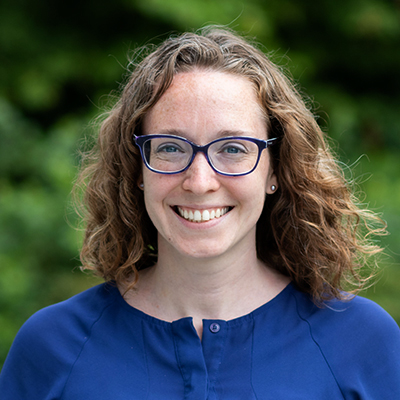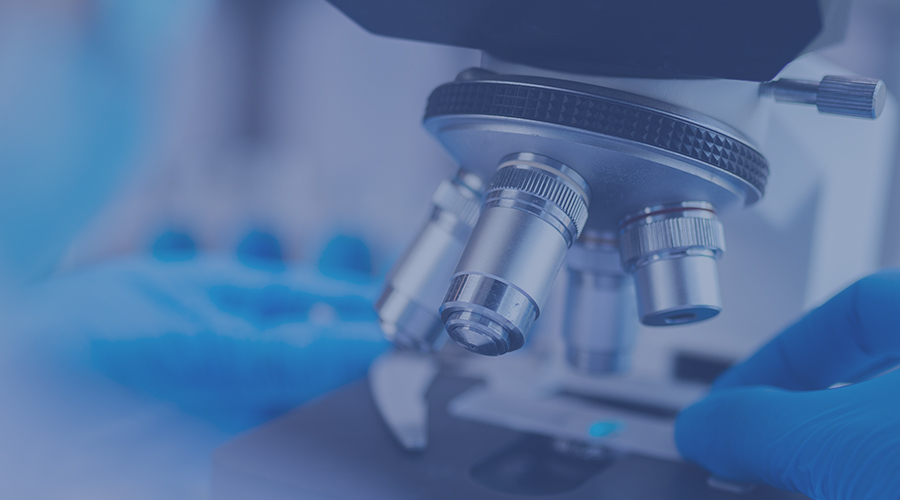Program dates: July 11 - August 1, 2026
-
Move-in: July 11
-
Orientation: July 12
- Move-out: August 1
Microbiology and Infectious Diseases Academy will give students an opportunity to understand the basic cell and molecular biology, microbiology, immunology, genetics, epidemiology and public health initiatives surrounding the study of infectious disease. Malaria, HIV/AIDS, COVID-19, influenza, smallpox, as well as other endemic and pandemic species, both old and new, will be discussed. The central dogma of molecular biology, the basics of the structure of the cell, the life cycle of pathogens, and the mammalian immune system will be covered in enough depth to give students the tools to comprehend the different strategies for preventing, testing, treating and educating the public on infectious disease.
Students will work on case studies on several pathogens important in global health using concepts learned in daily lectures. Students will listen to or participate in interviews with a variety of experts whose work intersects with infectious disease, public health, or pandemic response each day of the course. Students will visit biomedical research labs and perform microbiology experiments themselves to get hands-on experience in the field. Students will be asked to lead a discussion and prepare a final public service announcement for their peers, friends, and family to educate them on ‘what they need to know’ about responding to the next pandemic.
Features
Course structure and components: The lecture content comes largely from the field of microbiology. During class, first, students will actively participate in a lecture on the scientific principles required to understand a particular aspect of a pathogen life cycle, its pathogenesis in people, and infectious disease outbreak management in populations. Following lectures, students will work in groups to do activities that encourage them to apply this knowledge to understand the information, news, data, and outbreaks all around them. These activities might include field trips, discussions, debates, and Q&A sessions with guest speakers and projects. Several hands-on activities like labs, research projects, games, and lab visits will allow students to investigate and discover in the field of microbiology and biomedical research for themselves. Students will also listen to or participate in interviews from frontline workers, researchers, professors, virologists, microbiologists, epidemiologists, or public health experts involved currently or in the past pandemic response in the world and reflect on these interviews in small group discussions.
Final project: Students will present a review of an epidemic of a particular pathogen and lead a discussion on this with their peers as well as performing a public service announcement.
Course outcomes:
- Students will gain a basic understanding of the genetic code of DNA and how this translates to protein sequences
- Students will be able to list the basic components and processes of a cell and how these are used to replicate pathogens
- Students will learn the definitions and concepts behind key terminology that is familiar to them from reading the news on epidemics
- Students will collaborate with other students to analyze data, look up resources, interpret information found in articles, and put together a final public service announcement and pathogen review
- Students will be exposed to a variety of careers that are all involved in the prevention and treatment of infectious diseases and outbreaks
- Students will do several lab and hands-on activities and participate in field trips that allow them to do the work of microbiology and research themselves
Download: 2025 Syllabus (PDF)
Prerequisites
- One year of high school biology completed before the program begins
- For any students who will be using the high school course Living Earth or Living Environment as their one year of biology prerequisite, please include the course description with your transcripts for the admissions committee to review
- If you are currently enrolled in the prerequisite course(s), please submit your school report card or unofficial transcript showing at least one marking period, quarter, or semester, with your first and last name clearly visible, along with your application
Technology Statement
Students are required to bring their laptops or tablets to the program for in-class work and must have administrative access to make changes to the computer system and install applications.

Program Director: Ruth Elliott
Ruth Elliott is a senior lecturer in biology at the University of Pennsylvania and teaches biochemistry and biology to students in both Penn’s Pre-Health Post-Baccalaureate Programs and the fully online Bachelor of Applied Arts and Sciences program. Before teaching full-time starting in 2020, she did biomedical research in a lab as a research technician in the Perelman School of Medicine. At the time she worked on a family of viruses no one cared about (yet), the coronaviruses. After years of tutoring as a side gig, Ruth decided to make teaching her full-time gig, though she still misses hands-on research at times. During the COVID-19 pandemic, the Penn SAS High School Programs team asked her to teach the next generation about what was happening. Humbled, she consulted with many of the experts in the field to give students a well-rounded view of infectious disease and pandemics in hopes young people would see how they can contribute to (better) infectious disease outbreak responses of the future. A team of Pre-Health Programs students—aspiring doctors—teach the course with her every summer and is the highlight of the year for the whole team!



